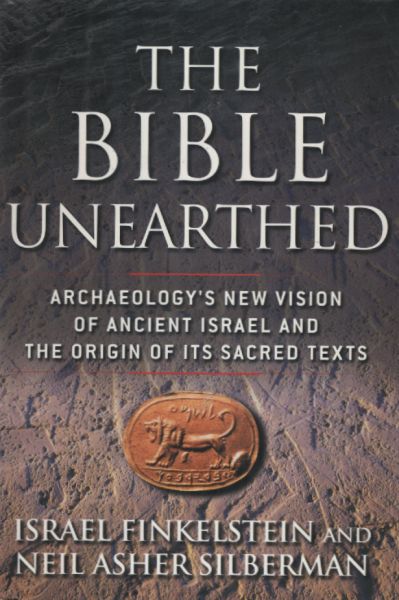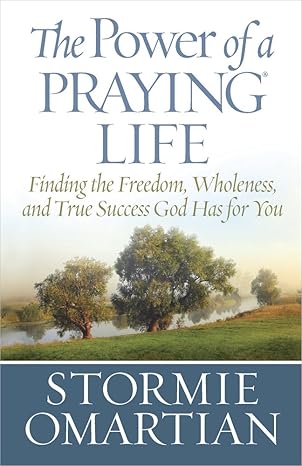
The Bible Unearthed Book Review: A Christian's Honest Take on Archaeological Evidence
Sunday, August 25, 2002I'll never forget the moment I opened The Bible Unearthed: Archaeology's New Vision of Ancient Israel and the Origin of Its Sacred Texts by Israel Finkelstein and Neil Asher Silberman. There I was, expecting another dry academic book about biblical archaeology, when suddenly I found myself face-to-face with questions that made my comfortable assumptions about Scripture feel... well, less comfortable.
As a fellow believer, I'll be honest—this book asks some tough questions. What if the grand narratives we've grown up with—the Exodus, Joshua's conquest of Canaan, the golden age of David and Solomon—don't align with what archaeologists are digging up in the Holy Land? It's like finding out your family's treasured stories might have more legend mixed in with the history than you realized.
In this review, I want to walk through this groundbreaking (and yes, controversial) work with you. We'll explore what these scholars are claiming, examine why it matters, and figure out together whether this book deserves a spot on your reading list.
About The Bible Unearthed
Meet the Authors
Let me introduce you to the minds behind this shake-up. Israel Finkelstein isn't some ivory tower theorist—he's been getting his hands dirty in Israeli soil for decades as a professor at Tel Aviv University. This guy has directed excavations across Israel and Palestine, so when he talks about what the dirt is telling us, he's speaking from experience.
His co-author, Neil Asher Silberman, brings a different gift to the table. He's spent his career as a historian and archaeological journalist, which means he knows how to translate complex scholarly debates into language the rest of us can actually understand. Think of him as the bridge between the academic world and your local Bible study group.
What They're Actually Saying
Here's where things get interesting (and potentially uncomfortable). The Bible Unearthed takes a hard look at some of our most beloved Old Testament stories through the lens of archaeology. The authors argue that iconic narratives—the Exodus from Egypt, Joshua's conquest of Canaan, and the golden age of David and Solomon's United Monarchy—don't have the archaeological backup we might expect.
Instead, they suggest that many biblical texts were actually composed much later, during the seventh century BCE under King Josiah of Judah. Picture it like this: imagine if someone in the 1800s wrote the "definitive" history of the American Revolution, but they had their own political agenda and limited access to original sources. The core events might be true, but the telling would be shaped by their time and purposes.
The authors propose that biblical monotheism didn't appear overnight like a spiritual lightning strike, but developed gradually over centuries. It's a picture of slow cultural evolution rather than dramatic divine intervention—which, I'll admit, can be challenging for those of us who love the miraculous moments in Scripture.
The Good: Why This Book Matters
They Make Complex Stuff Accessible
One thing I genuinely appreciate about Finkelstein and Silberman is that they don't talk down to their readers. You know how some academic books feel like trying to drink from a fire hose? This isn't one of them. These authors have taken potentially dry archaeological reports and turned them into something that reads like a historical detective story.
I remember reading their chapter on David and Solomon and thinking, "Wow, I never considered that angle before." They don't just throw data at you—they help you see the bigger picture of how ancient cultures developed and changed over time.
They Actually Show Their Work
Here's something that impressed me as someone who values evidence: they don't just make claims and expect you to take their word for it. They consistently lay out the archaeological evidence, explain what it suggests, and show how it relates to biblical texts. It's like having someone walk you through their research step by step.
Their examination of how monotheism developed over time, for instance, isn't just theoretical speculation. They point to specific archaeological finds, cultural patterns, and textual evidence. Whether you agree with their conclusions or not, you can see how they got there.
It's Sparked Important Conversations
Since this book came out, it's gotten people talking—and that's not necessarily a bad thing. Within Christian circles, it's encouraged deeper discussions about how we understand Scripture, the relationship between faith and history, and what it means for our beliefs if some biblical accounts are more theological than strictly historical.
Think of it like this: if your faith can't handle honest questions, maybe it needs to grow stronger, not hide from challenges. This book has pushed both scholars and everyday believers to think more carefully about how we read and interpret the Bible.
They Respect the Evidence
What I found refreshing is that Finkelstein and Silberman don't seem to have an anti-faith agenda. They're not trying to "debunk" the Bible so much as understand it better through historical and archaeological investigation. They prioritize material evidence over traditional assumptions, which—even if it makes us uncomfortable—is honest scholarly practice.
The Not-So-Good: What to Keep in Mind
It's Still Hotly Debated
Let me be clear about something: this book doesn't represent the final word on biblical archaeology. Other respected scholars look at the same evidence and reach different conclusions. It's a bit like having different doctors examine the same X-ray—sometimes they see different things or emphasize different aspects of what they're looking at.
If you're going to read this book (and I think you should), remember that it's presenting one perspective in an ongoing scholarly conversation, not settled facts that everyone agrees on.
It Can Be Dense at Times
Even though the authors try to keep things accessible, some sections still require you to put on your thinking cap. The archaeological methodology and ancient Near Eastern historical context can get pretty detailed. It's not exactly bedtime reading—more like a serious documentary than a casual Netflix show.
It Might Challenge Your Comfort Zone
I'm going to be straight with you here: if you prefer your Bible study to stay in familiar territory, this book might push you into some uncomfortable spaces. The authors' evidence-based approach directly questions some traditional interpretations that many of us grew up with.
That's not necessarily bad—iron sharpens iron, after all—but it's something to be prepared for. Some readers have told me they found it unsettling to have long-held beliefs examined so critically.
Who Should Read This Book?
Let me help you figure out if this book is for you:
- Seminary students and pastors who want to engage with current biblical scholarship
- Curious believers who aren't afraid to ask tough questions about Scripture
- Bible study leaders who want to understand different approaches to biblical interpretation
- Anyone fascinated by archaeology and ancient history
- Christians in dialogue with skeptics who raise historical questions about the Bible
- Thoughtful readers who appreciate evidence-based approaches to understanding our faith
My Honest Take: Is It Worth Reading?
Here's my bottom line: The Bible Unearthed is essential reading for any Christian who wants to engage seriously with biblical scholarship in the 21st century. Finkelstein and Silberman have written a book that, while controversial, asks important questions using solid archaeological methods.
Will it shake up some of your assumptions? Probably. Will it strengthen your faith? That depends on how you approach it. For me, wrestling with challenging ideas has actually deepened my appreciation for Scripture's complexity and richness. It's like the difference between looking at a painting from across the room versus examining the brushstrokes up close—you see things you missed before.
The book succeeds because it doesn't claim to have all the answers. Instead, it demonstrates how archaeology can help us understand the world that shaped biblical texts. Whether you end up agreeing with their conclusions or not, you'll come away with a richer understanding of how ancient texts develop and how faith and history intersect.
For those of us who believe that all truth is God's truth, there's no reason to fear honest investigation. If anything, The Bible Unearthed shows us that the story of God's people is even more complex and fascinating than we might have imagined.
So yes, I recommend it—but with this advice: read it as a fellow traveler on the journey of faith, someone who's willing to ask hard questions because you believe the answers matter.
More Books
Comments



